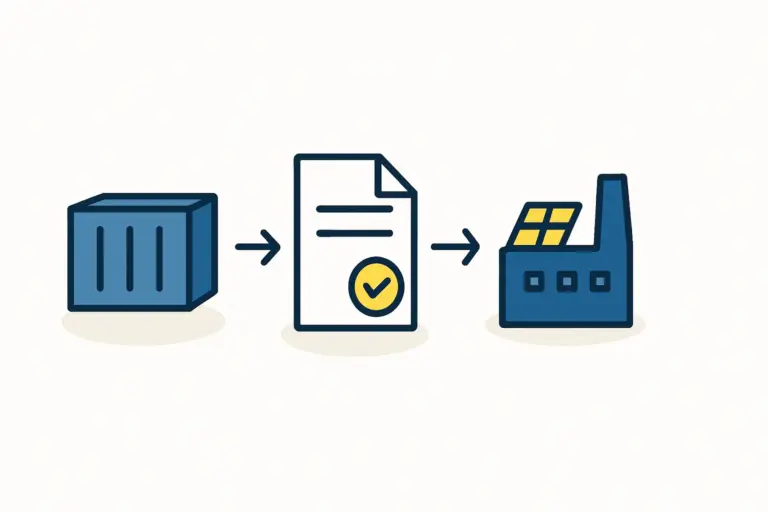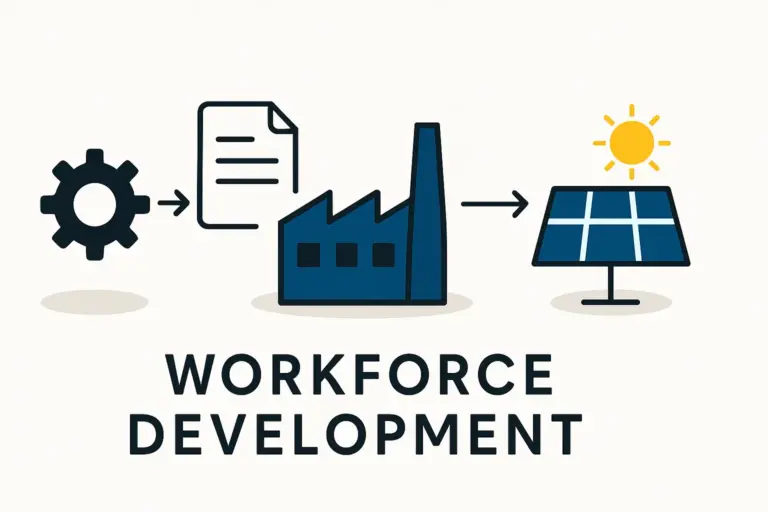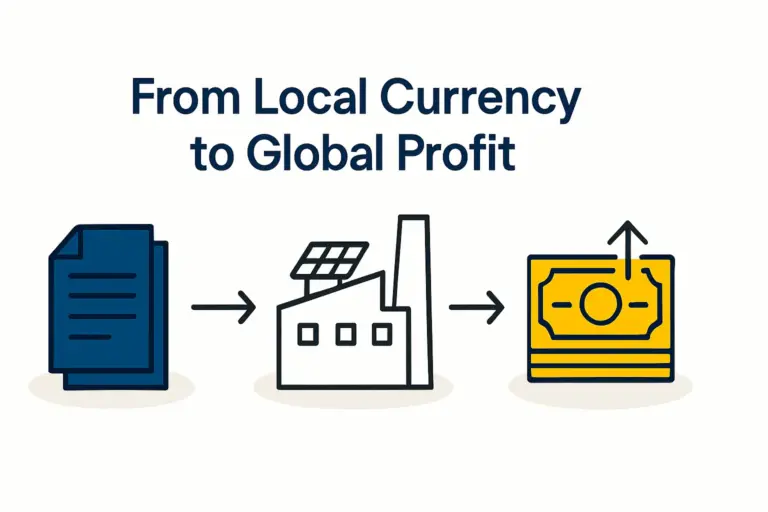A Feasibility Study: Supplying Locally Manufactured Solar Modules to Equatorial Guinea’s Oil & Gas Sector
Deep within Equatorial Guinea’s mainland region, a remote wellhead facility operates to the constant hum of a diesel generator. This sound marks a necessary but costly lifeline, providing power for critical monitoring and control systems. Beyond the fuel’s volatile price, its delivery presents a significant logistical challenge.
This scenario, common across the nation’s dominant oil and gas industry, represents not just an operational cost but a compelling business opportunity for a forward-thinking entrepreneur. This article explores the feasibility of establishing a local solar module factory aimed specifically at this high-value industrial market.
The Untapped Synergy: Solar Power and Oil & Gas Operations
At first glance, solar power and fossil fuels may seem like opposing industries. In reality, they form a powerful operational synergy. Equatorial Guinea boasts excellent solar irradiation, averaging approximately 4.9 kWh/m² per day—a resource that remains largely untapped. The country’s oil and gas sector, which forms the bedrock of the economy, has a substantial, ongoing need for reliable, off-grid power at remote sites.
Currently, this power is overwhelmingly supplied by diesel generators. This dependence creates several business challenges that solar technology is well-suited to solve:
-
High Operational Expenditure (OPEX): The cost of diesel fuel, transportation to remote locations, and regular generator maintenance significantly increase operational overhead.
-
Logistical Complexity: Managing fuel supply chains to dozens or hundreds of remote assets is a constant and resource-intensive task.
-
Reliability Issues: Mechanical failures in generators can lead to downtime for critical systems, posing both financial and safety risks.
By replacing or augmenting diesel generators with solar photovoltaic (PV) systems, oil and gas operators can directly address these challenges, converting a recurring cost center into a capital investment with a predictable return.
Key Applications for Solar in Equatorial Guinea’s Energy Sector
The demand for power within the oil and gas industry is not monolithic; it consists of several distinct applications, each presenting a clear case for solar integration. A local solar module manufacturer would be positioned to supply solutions tailored to these specific industrial needs.
Wellhead Monitoring and SCADA Systems
Supervisory Control and Data Acquisition (SCADA) systems are the nervous system of any modern oil field, providing real-time data on pressure, flow, and temperature. These systems require a small but absolutely constant supply of power. A solar panel array coupled with a battery storage system offers a highly reliable, low-maintenance power source, far superior to a generator that requires constant refueling.
Cathodic Protection
Pipelines are susceptible to corrosion, a slow but relentless process that can lead to catastrophic failures. Cathodic protection systems prevent this by using a low-voltage direct current (DC). Solar panels naturally produce DC power, making them a perfect and highly efficient power source for these essential asset-protection systems, which are often located in remote, inaccessible areas along pipeline routes.
Remote Worker Camps and Operational Hubs
The power needs of living quarters, offices, and workshops at remote sites are substantial. While solar alone may not replace large generators entirely, a solar-diesel hybrid system can drastically reduce fuel consumption. During daylight hours, solar can power the entire facility while also charging batteries. The generators are then needed only during periods of low sun or peak demand, cutting fuel usage by 50% or more.

The Business Case for a Local Solar Module Factory
While importing solar modules is an option, establishing a local manufacturing plant offers compelling advantages for serving the domestic oil and gas sector.
Meeting Local Content Requirements
A key driver in Equatorial Guinea is the government’s focus on local content. The National Content Regulation of 2014, for instance, encourages and often mandates the use of local goods and services in the petroleum industry. An in-country manufacturer of solar modules is perfectly positioned to benefit from these regulations, giving it a powerful competitive edge over international suppliers. Oil and gas companies have a clear incentive to procure from such a facility to meet their local content obligations.
Reducing Supply Chain Risks and Costs
Importing a high volume of fragile, bulky items like solar panels involves significant logistical hurdles, including international shipping costs, port delays, customs clearance, and the risk of damage in transit. A local factory bypasses these complexities, offering clients faster delivery times, reduced transportation costs, and the assurance of on-the-ground support and warranty fulfillment.
Economic Diversification and Job Creation
For stakeholders and entrepreneurs focused on national development, a solar factory aligns with broader economic goals. It represents a tangible step toward diversifying the economy beyond fossil fuel extraction, creating skilled jobs, and building domestic technical capacity in a future-proof industry.

Technical and Financial Considerations for Local Production
To successfully supply a demanding industrial client base like the oil and gas sector, a local manufacturer must focus on quality, precision, and a clear understanding of the investment landscape.
Module Specifications for Industrial Use
Modules destined for industrial sites, especially in coastal or offshore environments, may require specifications that differ from standard residential panels. This could include enhanced corrosion resistance, more robust frames, and junction boxes with higher ingress protection (IP) ratings. A local factory can tailor its production to meet these specific client requirements—a level of customization difficult to achieve with mass-produced imports.
Investment and Operational Scale
The barrier to entry may be more accessible than many assume. Based on J.v.G. Technology GmbH’s experience with turnkey projects, the required investment for a small-scale solar factory with an annual capacity of 20–50 MW can be structured efficiently. Such a facility can be operated with a workforce of under 30 people, making it a feasible venture for established entrepreneurs looking to enter a new sector.
Quality and Certification
Oil and gas companies adhere to rigorous international standards for all equipment. To be considered a credible supplier, a local factory’s products must meet these benchmarks. Obtaining the necessary certifications for solar modules, such as those from the International Electrotechnical Commission (IEC), is not optional—it is a fundamental requirement for building trust and securing contracts with high-value industrial clients.

Frequently Asked Questions (FAQ)
Why can’t the oil and gas companies just import the modules themselves?
They can, but doing so often conflicts with their local content obligations. Furthermore, a local supplier de-risks their supply chain, provides faster lead times, and offers tailored products and local technical support, which are highly valued in industrial operations.
What is the biggest challenge for a new solar factory in this market?
The primary challenge is establishing credibility. This is overcome by focusing relentlessly on quality control, achieving international certifications (like IEC 61215 and IEC 61730), and demonstrating a deep understanding of the client’s operational needs.
Is the oil and gas market large enough to sustain a dedicated factory?
The oil and gas sector provides a stable, high-value “anchor market.” It allows the factory to establish a baseline of production and revenue. Once operational, the facility can easily expand its client base to serve other growing sectors, such as commercial, agricultural, and residential markets across the country.
What kind of skills are needed to run such a factory?
A successful operation requires a blend of technically skilled line operators, quality control engineers, and a competent management team. Many of these skills are transferable from other manufacturing or industrial sectors, and a structured training program can bridge any knowledge gaps.
Conclusion: A Strategic Entry Point into a Growing Market
The energy needs of Equatorial Guinea’s oil and gas sector represent a well-defined, high-value market for a local solar module manufacturer. The convergence of high operational costs for diesel, strong local content policies, and excellent solar resources creates a compelling business case.
For the entrepreneur, this niche market is not just an opportunity in itself; it is a strategic and de-risked entry point into the broader solar industry. By first establishing itself as a trusted supplier to a demanding industrial clientele, a local factory can build the reputation, technical capacity, and operational track record needed to capture future growth across the entire nation.






